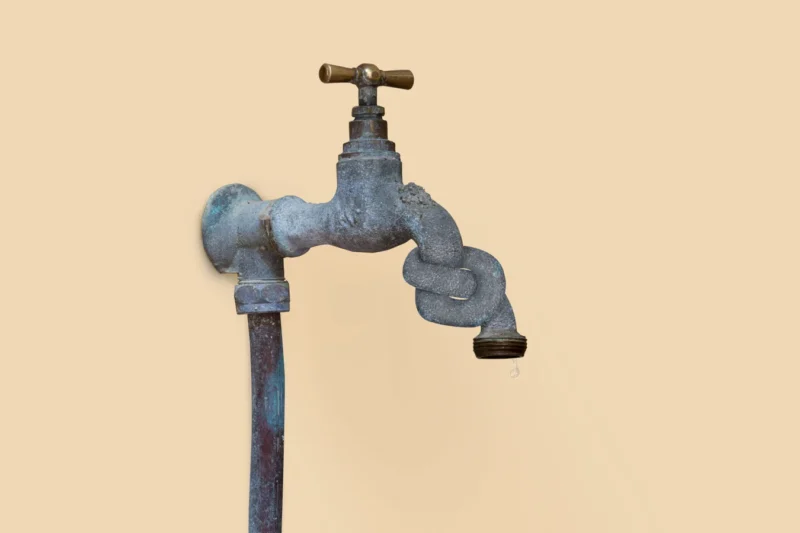[해외 DS] 갈증의 심리학, “물 부족, 미래 지향적 사고 촉발”
물 부족은 다른 결핍과 달리 사람들의 사고방식을 미래 지향적으로 만들어 전 세계적으로 동일한 현상이며 나라 간의 문화 차이도 설명해 인간은 물에 의존적이며 진화 과정에서 물 부족에 민감해졌을 가능성 있어
[해외DS]는 해외 유수의 데이터 사이언스 전문지들에서 전하는 업계 전문가들의 의견을 담았습니다. 저희 데이터 사이언스 경영 연구소 (GIAI R&D Korea)에서 영어 원문 공개 조건으로 콘텐츠 제휴가 진행 중입니다.

우리의 뇌는 결핍에 민감하다. 시간, 음식 등 필수적이라고 생각하는 것이 부족하면 사람의 생각과 행동에 강력한 영향을 미친다. 이런 일이 일어나는 이유를 설명할 수 있는 한 가지 가능성은 결핍이 정신적 부담으로 작용한다는 것이다. 충분하지 않다는 느낌이 일종의 산만함이 되어 집중하거나 계획을 세우는 데 어려움을 겪게 된다.
그러나 최근 연구에 따르면 사람들은 물 부족에 대해 다른 결핍과는 매우 다르게 반응한다는 사실이 밝혀졌다. 전 세계 사람들을 대상으로 조사한 결과, 물이 부족한 지역의 사람들은 보다 장기적인 관점에서 사물을 생각하는 것으로 나타났다. 아울러 물 부족에 대한 걱정은 물 뿐만 아니라 다른 자원에 대해서도 더 나은 계획을 세우고 낭비적인 행동을 줄이도록 유도했다.
물 부족에 대한 인식 실험 결과 장기지향성 높아져
연구팀은 여러 가지 방법으로 물에 대한 사람들의 반응을 조사했다. 한 실험에서는 대학생 211명을 세 그룹으로 나눴다. 첫 번째 그룹은 최악의 물 부족 사태에 대한 예측이 담긴 기사를 읽었고, 두 번째 그룹은 기후변화로 인해 강수량이 높아지고 물이 풍부해진다는 내용이었다. 홍수의 위협에 대해서는 언급하지 않았고 긍정적인 측면에 초점을 맞췄다. 마지막 그룹은 기사를 읽지 않았다.
그런 다음 학생들에게 자원을 절약하고 장기적인 관점에서 생각하는 것이 얼마나 중요한지 물었다. 그 결과 심각한 물 부족 사태에 관해 역설한 기사 내용을 읽은 참가자들은 “사람들은 미래를 위해 살아야 한다”와 같은 설문조사 항목에 더 많이 동의했다. 또한 “내일을 위해 오늘 사지 말아야 할 물건이 있다”와 같이 절약에 관한 항목에 더 많이 동의하는 경향을 보였다.
이와는 대조적으로 미래의 물 과잉에 관한 기사 내용을 읽은 두 번째 그룹은 정반대의 방향으로 설문지에 답했다. 이들은 기사를 읽지 않은 세 번째 그룹에 비해 현재를 위한 삶을 지지하고 돈과 기타 자원을 절약하는 데 관심도가 낮았다.
물론 물 부족에 대해 단순히 읽는 것과 실제로 경험하는 것은 다를 수 있다. 그래서 연구팀은 여러 세대에 걸쳐 실제 물 부족을 경험한 지역 사회를 조사했다. 이란에서 지리적으로 가까운 두 도시, 시라즈와 야즈드는 경제 규모가 비슷하고 대다수 종교, 언어, 민족이 같지만 물의 양은 극명하게 달랐다. 시라즈는 세계적으로 유명한 와인을 생산하는 포도밭을 지탱할 만한 강우량이 있다. 하지만 야즈드는 건조하다. 연구팀은 시라즈와 야즈드에 거주하는 331명을 대상으로 심리학자들이 말하는 ‘장기지향성(long-term orientation)’, 즉 개인이 미래를 얼마나 우선시하는지를 측정하기 위해 심리 테스트를 진행했다. 그 결과, 야즈드에 사는 사람들은 시라즈에 사는 사람들보다 미래를 위한 계획이 더 중요하다고 생각했고, 시라즈에 사는 사람들은 야즈드에 사는 사람들보다 현재를 살아야 한다는 관점을 더 선호했다.
세계적 현상인 이유, 생존과 관련된 진화의 산물
연구팀은 한 걸음 더 나아갔다. 이란은 가뭄에 특히 취약하기 때문에 다른 지역 주민들보다 물 부족에 더 민감할 수 있다. 다른 지역에서도 비슷한 패턴이 존재하는지 알아보기 위해 사람들의 신념과 가치관에 대한 정보를 수집하는 장기적인 글로벌 연구 프로젝트인 ‘세계 가치관 조사(World Values Survey)’ 자료를 활용했다. 그 중 87개국의 응답자들에게 절약과 미래를 위한 저축의 중요성을 물은 조사 데이터에 주목했다. 그 결과, 물 부족의 역사가 있는 국가에 거주하는 사람들이 미래를 위한 저축에 더 많이 동의하는 경향이 있다는 사실을 발견했다. 예를 들어 유럽에서는 물이 풍부한 아이슬란드 사람들은 미래에 대해 덜 생각하는 반면, 건조한 스페인 사람들은 미래에 대해 더 많이 생각하는 것으로 분석됐다.
미래를 대하는 문화적 차이를 다른 측면에서 설명할 수는 없을까? 놀랍게도 각국의 물 부족 역사는 다른 명백해 보이는 요인들보다 더 많은 문화적 차이를 설명했다. 예를 들어 1인당 국민소득은 문화 간 차이를 설명하지 못했다. 부패는 사람들이 미래에 대해 생각하는 것을 어렵게 만들 수 있지만, 그것도 강력한 예측 요인은 아니었다. 장수하는 경향이 있는 나라에서 사람들이 미래에 대해 더 많이 생각할 것 같지만, 놀랍게도 국가의 평균 수명은 물 부족만큼 강력한 예측 요인이 아니었다.
여러 연구 결과에 따르면 물은 부를 비롯한 다른 중요한 자원과 구별되는 강력한 영향력을 가진다. 사실 인간은 물의 중요성 때문에 물 부족에 극도로 민감하게 반응하도록 진화했을 수 있다. 인간은 수천 년 동안 돈 없이도 살아왔지만, 물은 단 며칠만 없어도 견디지 못한다. 인간의 후각을 살펴보면 물에 대한 예외적인 반응을 가진 이유를 어렵지 않게 찾아볼 수 있다. 쥐는 후각 수용체를 암호화하는 약 1,000개의 기능 유전자를 가지고 있는 반면, 인간은 400개(더 이상 기능하지 않는 약 600개의 유전자를 포함)에 불과하다. 하지만 인간은 상어가 피를 감지하는 것보다 비 냄새를 더 잘 감지한다.
물 부족에 대한 민감성을 이해하고 있는 것이 앞으로도 중요해질 수 있다. 기후 변화는 가뭄을 더욱 흔하게 만들고 있기 때문이다. 많은 지역이 건조해짐에 따라 지구 온난화가 사람들의 일상생활을 위협할 때, 물 부족은 더 따뜻한 세상에 대비하고 대응할 수 있는 독특하고 강력한 동기가 될 수 있다. 연구팀은 해당 연구 결과로 공동체 전체가 더 신중하고 미래지향적인 행동으로 나아갈 수 있기를 희망한다고 전했다.
Water Scarcity Changes How People Think
Lacking money makes people focus on the present—but lacking water makes them plan for the future
Our brain is sensitive to scarcity. The lack of something we consider vital, such as time or food, can powerfully shape our thinking and behavior. Take money, for example. When people play a game that makes some players abruptly wealthier or poorer, those who lose money start making decisions that result in them being better off now but worse off later.
One potential explanation for why this happens is that scarcity is mentally taxing: the sense of not having enough becomes a sort of distraction that makes it harder to focus and plan.
In recent work, however, we found that people react to water scarcity very differently than they do to other shortages. In studies of people around the world, we found that those in places where water is scarce think more about the long term. And confronting people with water scarcity in the lab made them focus on the future. Worrying about water shortages prompted better planning and less wasteful behavior—not only with water but with other resources, too.
As a species that is acutely dependent on water—without it, we would die within days—we seem to be wired to plan for it. The loss of water prompts a general mindset of thrift and long-term thinking. This discovery could have important implications for humankind’s response to climate change.
[Read more about humanity’s reliance on water]
We explored thinking about water in several ways. In one experiment, we brought 211 college students to the lab and asked a portion of them to read an article we provided. Some received an article that was dire. It detailed predictions of the worst “water shortage in 1,200 years.” Others read an article that was more upbeat. It described how climate change means more rain and therefore ample water. (The latter article focused on the positives of water availability and did not, for example, discuss threat of floods.) The rest of the students completed the study without reading an article.
We then asked the students how important it was to save resources and think about the long term. We found that the mere idea of water scarcity was enough to kick-start them into thinking about the future. Participants who read about a serious shortage agreed more with survey items such as “People should live for the future.” They also agreed more with items about saving, such as “There are things I resist buying today so I can save for tomorrow.”
In contrast, reading about a future water surplus pushed people in the opposite direction. They endorsed living for the present and cared less about saving money and other resources, compared with those who had answered the questions without reading about climate change at all.
Of course, simply reading about water scarcity might have different effects than actually experiencing it. So we looked for places where communities have experienced real water scarcity for generations. We found two geographically close cities in Iran—Shiraz and Yazd—that have similar economies and the same majority religion, language and ethnicity but sharply different amounts of water. Shiraz receives enough rainfall to support vineyards that produce its world-famous wine. Nearby Yazd is bone-dry. We gave psychological tests to 331 people in Shiraz and Yazd to measure what psychologists call “long-term orientation,” or how much individuals prioritize the future. Sure enough, people in Yazd thought that planning for the future was more important than those in Shiraz—while people in Shiraz liked the idea of living in the moment more than those in Yazd.
Then we went a step further. Iran is particularly vulnerable to drought, so perhaps people there are more sensitive to water scarcity than populations in other places. To get some sense of whether similar patterns exist elsewhere, we turned to the World Values Survey, a long-running global research project that gathers information about people’s beliefs and values. We focused on survey data that asked respondents in 87 countries about the importance of thrift and saving for the future. We found that those who live in countries with a history of water scarcity tended to agree more with saving for the future. For example, in Europe, people in water-rich Iceland thought less about the future, whereas those in dry Spain thought about the future more.
Importantly, countries’ history of water scarcity explained cultural differences beyond other, more obvious factors. For example, income per capita did not explain differences across cultures. Although corruption might make it hard for people to think about the future, it was not a strong predictor either. You might guess that people think about the future more in places where they tend to live longer, but astonishingly, national life expectancy was not as strong of a predictor as water scarcity.
Across studies, our findings suggest that water has a powerful place in our thinking—one that’s distinct from other important resources, including wealth. In fact, humans may have evolved to be acutely sensitive to water scarcity because it’s so critical to us. Humans managed without money for many thousands of years. Our species can endure without food for weeks but without water for just days.
There is some evidence of an evolutionary wiring for water if we look at our sense of smell. Mice have about 1,000 functional genes that encode smell receptors, whereas humans have only 400 (plus around 600 genes that may no longer be functional). Yet humans are better at detecting the scent of fresh rainfall than sharks are at detecting blood. The fact that water is so critical for human life makes it more plausible that evolution would wire us to have psychological reactions that are specific to the threat of water scarcity.
That sensitivity may be crucial going forward. Climate change is making droughts more common. Our work suggests that as many places dry up, global warming could reshape how people think, pushing whole communities toward more cautious, future-oriented behavior. That may offer a sliver of hope amid the threat of climate change. Water scarcity could be a uniquely powerful motivator to prepare for and respond to a warmer world.






